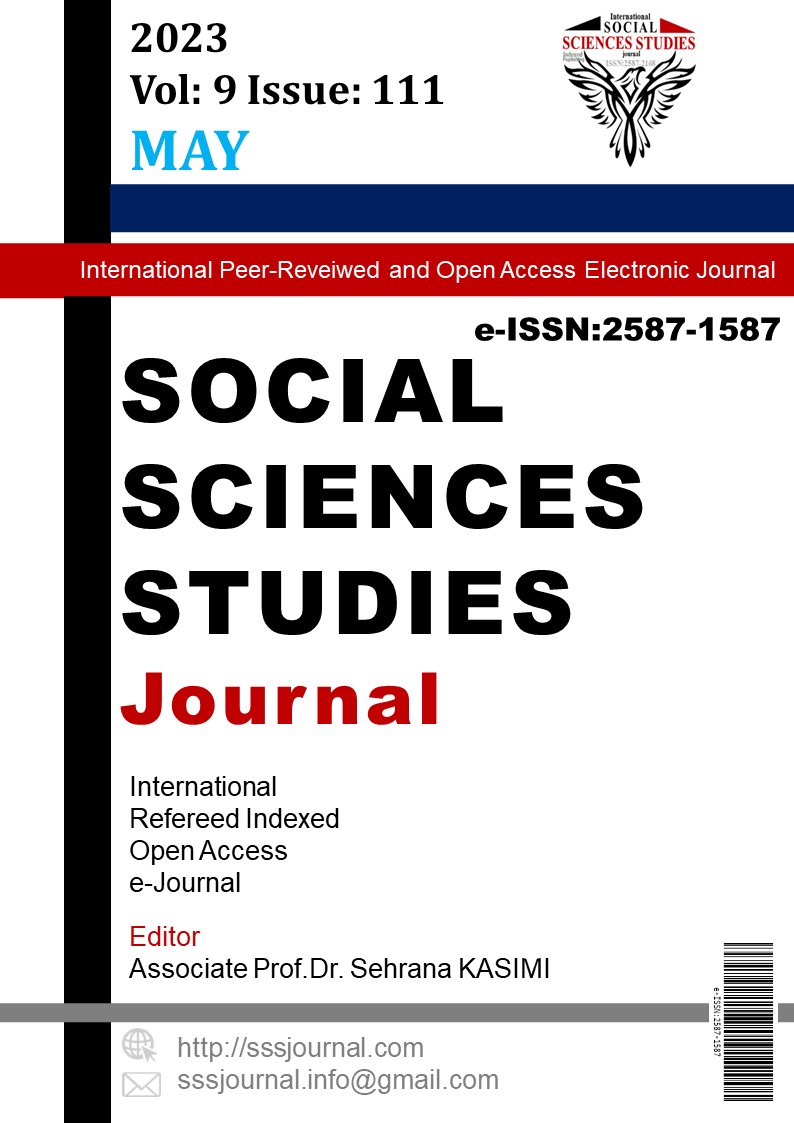Author :
Abstract
Amaç: Araştırmanın amacı spor bilimleri fakültesi öğrencilerinin teknopedagojik eğitim yeterliliklerinin bazı değişkenler açısından incelenmesidir. Gereç ve Yöntem: Araştırma için iki bölümden oluşan bir anket kullanıldı. Birinci bölüm, kişisel bilgileri içeren bir formu kapsarken, ikinci bölümde "Teknopedagojik Eğitim Yeterlik Ölçeği" kullanıldı. Elde edilen veriler SPSS 25.0 programı ile istatistiksel analizlere tabi tutuldu. İkili değişkenler için "Mann Whitney U" testi kullanılırken, ikiden fazla değişkenler için "Kruskal Wallis H" testi uygulandı. Elde edilen sonuçlar, p<0,05 anlamlılık düzeyinde test edildi. Bulgular: Araştırmaya katılan bireylerin teknopedagojik eğitim yeterlilikleri ile cinsiyet, yaş, sınıf, günlük internet kullanım süresi ve günlük sosyal medya kullanım süresi arasında yapılan analiz, tasarım, uygulama, etik ve uzmanlaşma alt boyutlarında ve bölüm değişkeninde uzmanlaşma alt boyutunda istatistiksel olarak anlamlı farklılıklar olduğunu göstermiştir (p<0.05). Sonuç: Çalışmamızda, cinsiyet,yaş ve sınıf değişkeninin tasarım, uygulama, etik ve uzmanlaşma alt boyutlarında anlamlı farklılık gösterdiği görülmüştür (p<0,05).
Keywords
Abstract
Aim: This research aims to assess the level of technopedagogical education competencies exhibited by students studying at the faculty of sports sciences, while taking various factors into account.Materials and Methods: The research involved the use of a two-part questionnaire to gather data, with the first part comprising personal information and the second part utilizing the "Technopedagogical Education Competency Scale," which was developed by Kabakçı Yurdakul, Odabaşı, Kılıçer, Çoklar, Biri, and Kurt (2012). SPSS 25.0 software was employed for statistical analysis, with the "Mann Whitney U" test used for binary variables and the "Kruskal Wallis H" test used for more than two variables. Results were tested for significance at a level of p<0.05. Results: Our study's analysis yielded a Cronbach Alpha internal consistency coefficient of 0.77. Within the research group, various independent variables were found to significantly influence the development of wisdom. Specifically, sub-dimensions related to gender, emotional regulation and stability, as well as social counseling, insight, tolerance for different values, and pro-social behavior exhibited notable differences. Conclusion: In our study, it was observed that the variables of gender, age and class showed significant differences in the sub-dimensions of design, practice, ethics and specialization (p<0.05).





